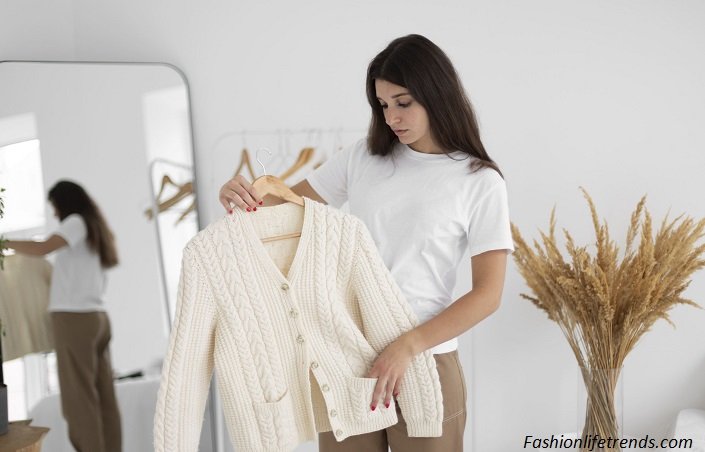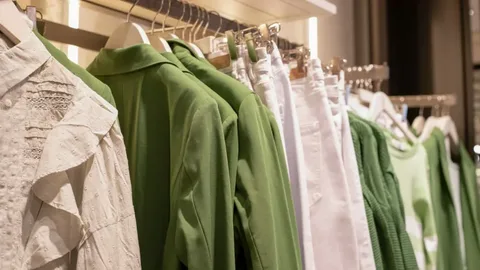Sustainable Fashion Courses In recent years, the term sustainable fashion has gained immense popularity, especially as more people become aware of the environmental impact of the fashion industry. From excessive water usage to the exploitation of labor in fast fashion factories, the need for ethical and environmentally friendly practices is growing. Enter sustainable fashion courses, designed to equip individuals with the knowledge and skills necessary to transform this industry.
This blog will explore what sustainable fashion courses entail, why they are important, and how they can help change the future of fashion. We will also cover some of the top programs available today and how to choose the right course for your goals.
What is Sustainable Fashion
Sustainable fashion refers to a movement aimed at fostering environmentally responsible and socially ethical practices throughout the entire fashion industry. It’s about producing garments in ways that reduce harm to the environment, minimize waste, and ensure fair treatment of workers. Sustainable fashion courses teach the theory and practical skills needed to implement these concepts in real-world scenarios.
These courses focus on:
- Reducing waste by promoting circular fashion systems (recycling, reusing, and upcycling).
- Using environmentally friendly materials and processes.
- Promoting fair labor practices.
- Minimizing the carbon footprint of fashion production and distribution.
Why Take a Sustainable Fashion Course
If you’re passionate about both fashion and sustainability, enrolling in a sustainable fashion course can provide you with the tools and insights you need to make a real difference. Here are some reasons to consider such a course:
- Environmental Awareness: Learn how the fashion industry impacts the environment and what can be done to minimize this harm.
- Ethical Practices: Understand the importance of ethical labor and fair-trade practices within the global supply chain.
- Career Opportunities: As sustainable fashion grows, so do career opportunities. Many brands and companies are looking for experts in this area to help revamp their production processes.
- Personal Fulfillment: Align your personal values with your career and contribute positively to the world.
What Do Sustainable Fashion Courses Cover
1. Materials and Textiles
A key part of sustainable fashion is understanding materials and their environmental impact. These courses often cover:
- Organic and recycled fabrics.
- Sustainable dyeing methods.
- Eco-friendly alternatives to synthetic fibers like polyester.
- The lifecycle of textiles and how they can be reused or repurposed.
2. Supply Chain Management
Sustainable fashion courses usually delve into the intricacies of ethical supply chains, which include:
- Fair labor practices.
- Responsible sourcing of raw materials.
- Energy-efficient production methods.
- Local versus global manufacturing impacts.
Courses teach how to audit a supply chain and ensure every step is as sustainable as possible. The end goal is to create products that are not only eco-friendly but also socially responsible.
3. Circular Fashion and Waste Reduction
Circular fashion is all about keeping materials in use for as long as possible, thus reducing waste. Students learn about:
- Upcycling old garments into new designs.
- How to design for recyclability.
- The impact of fast fashion and how to combat it with sustainable alternatives.
Incorporating these ideas into fashion design is essential for creating a truly sustainable industry.
4. Marketing and Communication
Being able to communicate sustainability is just as important as practicing it. Courses in sustainable fashion often teach how to market eco-friendly brands and how to educate consumers about sustainable practices. Students will learn:
- How to build a brand around sustainability.
- Transparent marketing practices.
- How to avoid “greenwashing” (deceptively marketing something as more sustainable than it is).
Top Sustainable Fashion Courses to Consider
Now that you know what sustainable fashion courses cover, here’s a look at some of the top programs available worldwide. These courses cater to both beginners and experienced professionals looking to deepen their knowledge.
1. London College of Fashion (LCF) – Sustainable Fashion MA
One of the most prestigious fashion schools in the world, the London College of Fashion offers a comprehensive Master’s program in sustainable fashion. This course covers all aspects of sustainability, from ethical supply chain management to innovative materials and textiles. It’s an ideal option for those looking to pursue careers in design, management, or fashion consulting.
2. Parsons School of Design – Sustainable Fashion Certificate
This certificate program at Parsons focuses on the sustainable design process. Students learn how to use eco-friendly materials and develop fashion products that are both stylish and sustainable. This is a shorter program, making it perfect for professionals already working in the industry who want to enhance their sustainability knowledge.
3. Fashion Institute of Technology (FIT) – Online Sustainable Fashion Courses
FIT offers a range of online courses on sustainable fashion, making it accessible to learners worldwide. Topics include ethical sourcing, sustainable materials, and the global impact of fashion. With its online format, it is perfect for those who need flexibility in their learning.
4. University of the Arts London (UAL) – Short Courses
The UAL offers several short courses focused on sustainable fashion, from sustainable design techniques to circular economy principles. These courses are ideal for beginners or professionals who want to quickly learn the essentials of sustainable fashion.
To learn more about sustainable fashion programs and their value, check out this resource from The New School which provides in-depth details about related courses.
How to Choose the Right Sustainable Fashion Course for You
When choosing a sustainable fashion course, there are several factors to consider:
1. Level of Expertise
Are you a beginner, or do you already have experience in fashion? Beginners may want to start with short courses or online programs that cover the basics, while more advanced learners might prefer a Master’s program.
2. Format
Do you prefer in-person learning, or is online education more your style? Many institutions offer both formats. Online courses are great for flexibility, especially for those balancing work and study.
3. Course Length
Some programs last only a few weeks, while others, like a Master’s degree, take years to complete. Consider how much time you can commit and what level of certification you are seeking.
4. Career Goals
If you’re looking to break into the fashion industry or advance your current career, a well-recognized institution like LCF or Parsons might be your best bet. However, if you’re more interested in learning for personal development, shorter courses or certificates might suffice.
5. Cost
Tuition varies greatly depending on the program, so be sure to weigh the cost against the potential career benefits. Some programs offer scholarships or financial aid, so be sure to explore those options.
Future of Sustainable Fashion
As consumer awareness around environmental issues continues to grow, the demand for professionals skilled in sustainable fashion will only increase. Governments and large corporations are also placing more emphasis on sustainability, which means future fashion leaders will need to be well-versed in sustainable practices.
Sustainable fashion courses are shaping the next generation of fashion designers, entrepreneurs, and industry leaders. Whether you’re passionate about design, supply chains, or marketing, there’s a place for you in the world of sustainable fashion.
Conclusion
Sustainable fashion is more than just a trend—it’s the future of the industry. By taking a sustainable fashion course, you’re not only investing in your own education but also contributing to a better, greener planet. The knowledge you gain can help you make informed decisions that will positively impact the environment, the people who work in fashion, and ultimately, the consumers who buy your products.
If you’re interested in exploring more about sustainable fashion education, this comprehensive guide from Vogue Business can provide additional insights and options for your learning journey.




